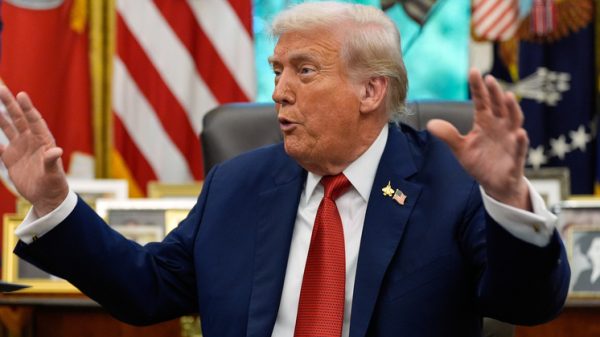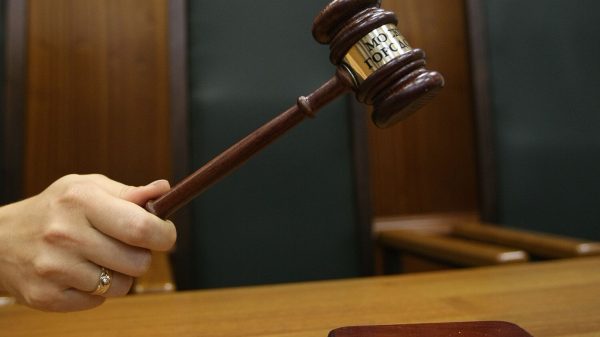Hong Kong democracy activists have warned the EU it must not ratify its planned new investment deal with China at a time when Beijing is tearing up international obligations to the people of Hong Kong.
The 24 activists – including 13 in exile – have written to the EU commission president, Ursula von der Leyen, to call for the EU to refuse to sign the treaty until China’s national security laws are repealed and restrictions on who can stand for election are lifted.
The letter comes as the EU prepares to try to sell its deal reached at the end of last year in the face of intense scepticism inside the European parliament. MEPs must ratify the deal before it can come into force.
That task will not be made any easier by China’s National People’s Congress voting unanimously bar one abstention overnight to back changes to Hong Kong electoral laws to ensure only patriots can stand.
The US has expressed its regret at the EU decision, and the Hong Kong exiles claim the EU is both being naive in trusting China’s commitments on labour rights and letting down those prepared to fight against authoritarianism by backing the deal.
The activists write: “Given that Beijing is in the process of rewriting Hong Kong’s electoral system in direct contravention to its international obligations under the Sino-British Joint Declaration, is currently undertaking mass arrests and trials of pro-democracy lawmakers and activists under the draconian National Security Law, and is infringing on basic freedoms guaranteed both under the Basic Law and the International Covenant on Civil and Political Rights, we do not see how the EU can move ahead with ratification of this investment treaty.”
The letter, facilitated by Hong Kong Watch, is co-signed by leading activists including Ted Hui, Lam Wing-kee, Brian Leung, Nathan Law, Joe Tay, Ray Wong, Glacier Kwong, Finn Lau, Simon Cheng and Joey Siu.
It adds: “It is simply absurd for the EU to expect China to uphold its obligations under a new bilateral investment treaty, when it is openly floating its current obligations to the international community to guarantee the autonomy and freedoms of the people of Hong Kong.”
The letter is likely to be powerful ammunition for the large group of MEPs who are determined to resist the investment treaty. They warn that if European leaders show no moral backbone and instead sign the treaty they will be sending a signal to China that there are no red lines, including over the future of Taiwan.
The activists argue that the EU will never have greater leverage over China than now, and it is not good enough simply to rely on China’s promises to make endeavours to sign up to ILO commitments to avoid the use enforced labour
Ted Hui, a former democratic lawmaker from Hong Kong, now in Australia, said: “Members of the European parliament, European leaders, and EU commissioners must search their conscience, and ask whether the last few weeks of oppression in Hong Kong will continue if they push ahead with the ratification of the EU-China investment partnership?”
Joey Siu, a Hong Kong activist in exile and associate of Hong Kong Watch, said: “The timing of CAI, months after the National Security Law was passed, sent a dreadful diplomatic message. It sent a message to Beijing that the EU would not sacrifice trading interests, no matter how they act, and communicated to Hongkongers that the EU is indifferent to our struggle to freedom.”
Ray Wong, the first refugee from Hong Kong to receive asylum in Germany, said: “In Hong Kong, we have experienced first-hand that the CCP is not willing to keep its word. While the Australians are being punished with tariffs for taking a stand for democracy, the EU is ploughing ahead with CAI. The deal will weaken the bloc’s ability to take a principled stand in solidarity with Hong Kong’s people, and Uighurs facing oppression.”
Many MEPs say the EU is in a totally compromised position since it is advocating closer economic ties with China at the same time as it is issuing statements condemning the changes to electoral law and vowing to be ready to take additional steps.
The commission says the deal, years in the making, improves market access for EU companies, protects intellectual property and provides levers to make demands on human rights. They argue it is unrealistic for the EU to decouple from China economically, and if engagement is the only option, it is best to compete on more equal terms than China allows at present.






















































Свежие комментарии